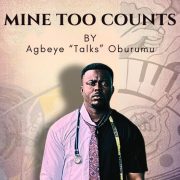You hate the policeman two blocks away from your house, but you want to be a policeman when you grow up. He is a thickset man with a voice close to the growl of a big bulldog. It is his big belly that first greets people he meets, even before his mouth speaks. Your friend, Suluba, says there is no type of food you can’t find in the policeman’s belly. No wonder his snoring always gets to your house, disturbing the peace of other sleepers.
He mounts Akpeki Junction every morning and evening, barking orders at motorists and okada riders. When they give him money, he laughs with them and takes it like he isn’t taking it. When a rider tries to be stubborn, he takes their key and grounds them for a long time.
He accuses every young man he sees strolling within his eyeshot of yahoo-yahoo and cultism. He grabs them by the waistline of their baggy trousers and begins to quote the law. Then he calms down when they ask him, Oga, how we go settle am? They furtively give him a kickback, and he furtively collects it. He goes ahead to erase their sins and let them off the rusted hook of law.
You do not like all he does, but you still want to be a policeman. It is better than unemployment. To be unemployed in Nigeria is to be twice dead. You hate washing. The black police uniform fits your style. As a policeman, you will not have to stay broke like your Baba. There are always motorists and okada riders to get money from. There are always boys loitering. You have to grab as many as you can, slap charges on them, and make enough dough off their heads. There is no way people will not cross the law.
You are thinking and walking down the dirt road, and then you see some boys loitering. The tall, skinny boy has his baseball cap turned around. It is a big offence. Mr Fat has folded the left leg of his blue jeans. Another offence. It is enough. You have to forget about the third boy since the money you can make from the two can serve you for days. You could get enough wraps from the Mai Suya down the street.
As you are thinking about the possibilities of making money from the three boys, you realise you are not a policeman. It aches your heart. You must become a policeman. There is no way you will be like Baba. He is not a rich man. He is not a poor man. Baba is just a very, very poor man.
Which serious Baba chooses to be a mechanic? It is very annoying. You hate going to his workplace. The people who come there are as poor as Baba. They are people who cannot afford to pay for the work he does. Do they think the mechanic workshop is a charity house? But Baba does not mind. He talks with them and laughs as though life is fair to him. But life is not his friend.
Look at where we sleep, you say to yourself. Your Baba’s house is a room. Baba, Mama, and you share the same room. They both sleep on a bed that creaks under their weight, while you sleep on a patchy butu, a mat, which you have to roll off each morning to give space in the room. There are nights you hear them moan and fidget like weak fighters. You are fourteen years old, and whenever they moan, the centre of your body gets warm.
When Baba and Mama decide not to moan, you get full disturbance from the rats. They turn your body into a dancing stage. There was a day one ran over your face, leaving its yellow urine in your hair. The rats think they own the house. To them, no human ought to live there. But you live there. You were born there.
You haven’t been going to school since last year. Your father says he cannot afford to buy your school fees and your books. He says success is not attached to education. But you are told the key to success is education. You do not actually know who is lying or telling the truth. Is it those who hold that education is the key, or your father, who dismisses education?
This evening, you are going to see your neighbour, Mr Romi, who works at a hotel called Hotel. He is the only man you talk to. Not Suluba—he talks too much. Not your Mama—she advises excessively. Not your Baba—he does not like talking to you.
“I do not want to be a politician”, you tell Mr Romi when he says you should forget about becoming a policeman.
“You do not understand the favours that come with being a politician, boy”.
“Does a politician carry a gun?” you ask him.
“No”, he says. “But he is government, and government is what controls the gun. When it says ‘shoot’, it shoots”.
“Does a politician arrest cultists and yahoo-yahoo boys?”
“No”
“Does he wear a black uniform?”
“No”
“Does he collect money from motorists and okada riders?”
He still says no. You have to be a policeman, then. The thought of being a nobody scares you to the marrow. The miserable life of your father is also what discombobulates you.
“Politicians own everything, boy”, he says and laughs. “They bring beautiful girls here every night. When there is no light, they have light. When there is no land, they have lands. When there is no water, they have tanks of it. They control everything. If your shirt is brown, they can change it to green. Which successful policeman do you know in this town?”
You move to talk, but he stops you mid-sentence, knowing the name you want to call and the defence you want to offer.
“Officer Deli is just suffering and smiling. His potbelly is a signature of hardship. To a politician, Officer Deli is just a lapdog. He will stay awake in the open while he guards a sleeping politician”.
You turn to leave, but his words hit your back, stopping you in your tracks.
“A politician has God, gun, and the government”.
You want to ask him why he is not a politician himself, but you cannot find the words.
As you walk homeward, you are thinking about what you really want to be—between a policeman and a politician. Is there a way you can be both at the same time? The answer is deep inside the dark recesses of your ignorance. You just need to be something. The idea of poverty is your biggest worry. In fact, it is the scariest thing in the world. You must be somebody. But for all you know, you will never be a poor mechanic like your father. Never.
Ornguze Nashima Nathaniel, also known as ONN, is a Nigerian writer from Benue State with a passion for telling stories that honour African memory, identity, and language. He works across fiction, nonfiction, and essays, drawing deeply from lived experience and from the histories quietly preserved in small places. Nathaniel tells his stories through a self‑coined literary style he calls Acheyinka — a form that centres on the dynamic use of language, blending the clarity and accessibility of Chinua Achebe’s prose with the poetic richness, strangeness, and symbolic depth found in Wole Soyinka’s writing. His work has appeared in Lounloun Journal, Pawners Paper Magazine, and elsewhere. Facebook: Ornguze Nashima Nathaniel, X (Twitter): @ONNNatty, Instagram: @nashimanathaniel



